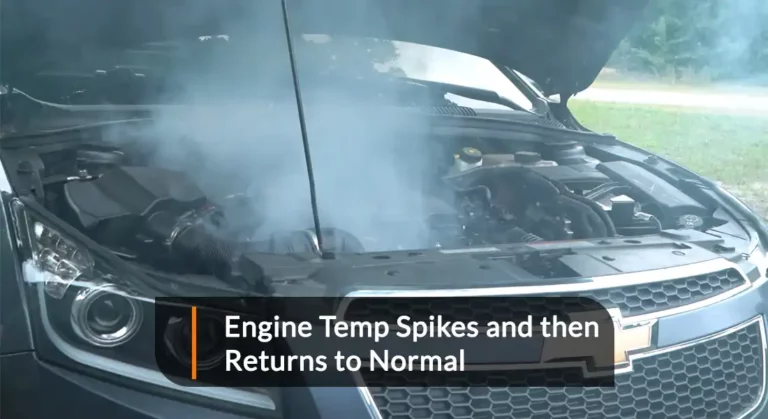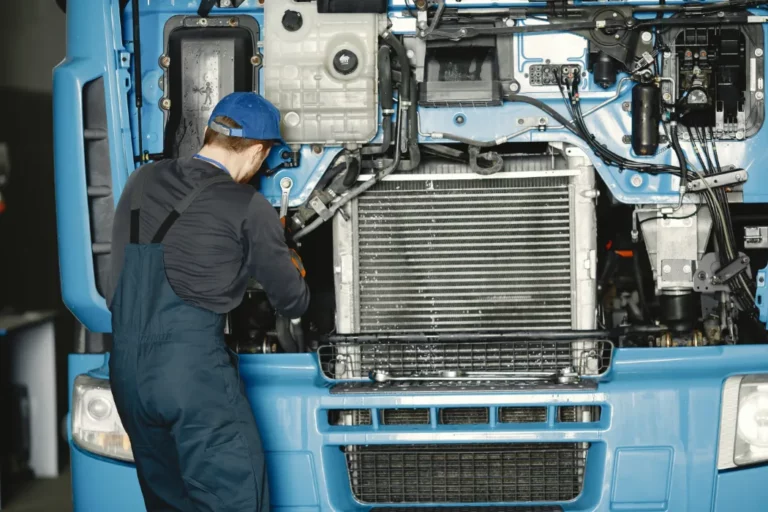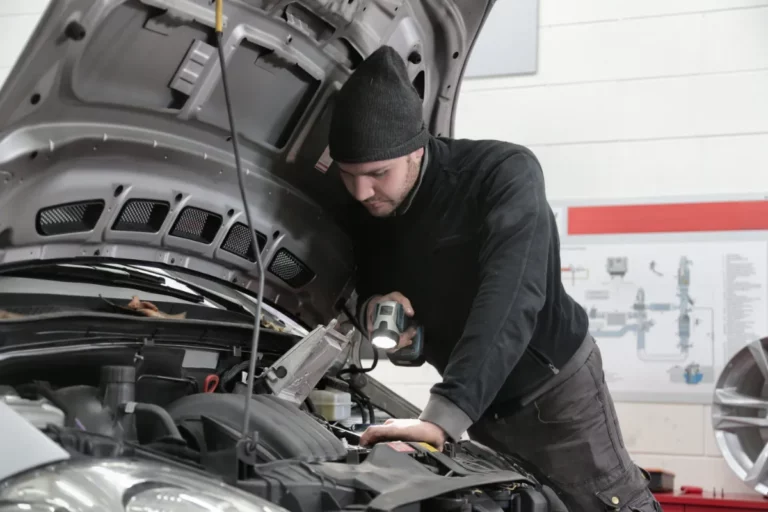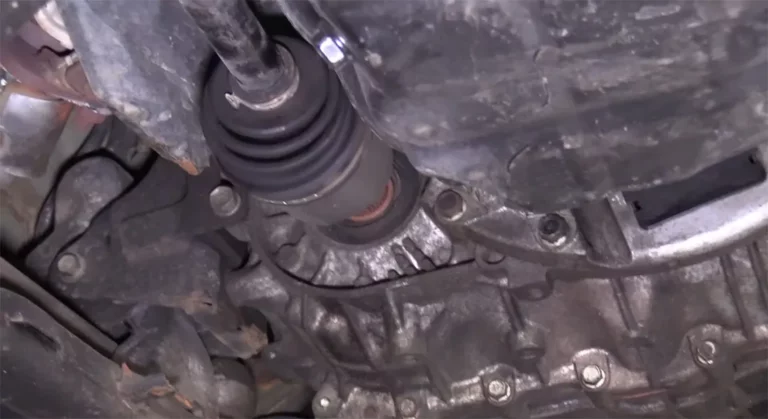Popping Noise In Steering Wheel When Turning – Causes & Fixes
Any noise apart from the buzzing noise of the engine is usually not good news for you. And the popping noise in steering wheel when turning is no exception. So, what does the sound mean?
There are many different problems that can trigger this noise which range from a small issue like insufficient power steering fluid or something as big as CV joint problems and more.
Today, we will talk about the many issues that can trigger this noise as well as the steps needed to fix the problem at hand. Let’s dive right into it!
7 Common Causes of Popping Noises on Steering Wheel

Here’s a list of potential issues that may trigger the popping noise in your vehicle:
1. Faulty or Worn-out Steering Components
Over time, you may notice that parts like tie rods, ball joints, or control arm bushings may go through wear and tear. If kept in that condition, the continuous stress on these components can cause them to make popping noises when turning the steering wheel.
2. Damaged Steering Column
When you have a damaged steering column, especially if it’s the clock spring or other internal mechanisms, it can end up creating popping noises.
3. Insufficient Power Steering Fluid
If the power steering fluid levels are low, it may cause air to become trapped within the system. This, in turn, can generate popping or whining sounds when turning.
4. Loose or Worn-out Steering Wheel Components
Loose bolts or fasteners, a damaged clock spring, or worn-out bearings within the steering wheel assembly often play a major role in contributing to the popping noises. Thus, it is imperative to inept them from time to time.
5. CV Joint Problems
Constant velocity (CV) joints that are located in the front axle assembly may create popping sounds if they don’t have sufficient lubrication or are in a state of wearing out.
6. Suspension Issues
Worn-out or damaged struts or shocks can create problems with the suspension system. This in turn results in the production of popping sounds when turning.
7. Misaligned or Worn-out Steering Belt
Problems with the steering belt such as misalignment or wear and tear cause irregular movements and noises when turning wheels.
Diagnosing the Steering Components
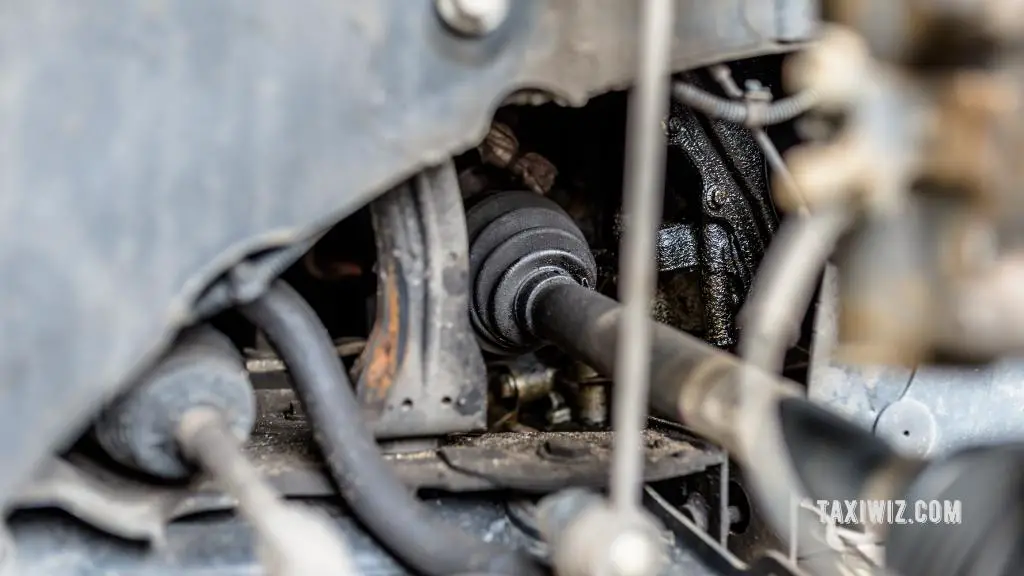
Let’s learn how to assess and identify potential problems with the steering components:
1. Visual Inspection:
- Inspect ball joints, tie rods, and control arm bushings for signs of damage, looseness, or wear and tear.
- Keep an eye out for excessive play, worn-out rubber bushings, and visible cracks or tears.
- Closely examine the components for signs of corrosion.
2. Physical Examination:
- Gently apply pressure or try to move the steering components and check for unusual movements.
- Keep an eye out for play in the ball joints and tie rods by grasping and attempting to move them.
- Evaluate the control arm bushings for deterioration or excessive movement.
3. Listening for Abnormal Sounds:
- While manually moving the steering components, keep your ears on alert to identify any additional popping, clicking, or clunking sounds.
- Listen carefully for any unusual noises that may occur during movement.
- Do pay close attention to the location and timing of the sounds so that you can pinpoint the problem area.
4. Testing the Steering System:
- Perform an all-inclusive road test to observe the steering performance. Try to detect any irregular sensations or noises while driving and turning.
- Take note of any changes in the steering feel, for example, increased looseness or rigidness.
How to Fix Potential Problems That Create the Popping Sound?
Down below you’ll find the potential fixes to the general problems that trigger the popping noise:
- If the popping noise is caused by damaged or worn-out steering components then replace those steering components.
- Sometimes the noise may be caused by a lack of lubrication. If that’s the case then lubricate the needed steering components as recommended by your vehicle’s manufacturer.
- In case the popping noise is caused by a damaged steering column, you either need to repair or replace it. You may require professional help if the task is too daunting to be carried on by yourself.
- Worn-out or damaged CV joints can trigger a popping noise in the front axle assembly. In this case, carefully inspect the part and make the needed repair or replacement.
- Improper wheel alignment can largely contribute to abnormal steering noises, for cases as such you need to ensure that the wheel is realigned properly. Do seek professional help if you aren’t confident with your alignment.
- Do seek professional help if you aren’t being able to pinpoint the source of the issue that’s causing the noise to occur.
Keep in mind that the popping noise can be triggered by other underlying issues apart from the general ones mentioned here. Thus, do seek professional help if needed as they have the adequate tools and expertise to diagnose and address the problem at hand.
Frequently Asked Questions (FAQs)
1. Is it safe to drive my car when there’s a popping noise in the steering wheel?
It’s generally safe to drive with a popping noise, however, it is advised against.
2. Can cold weather affect the occurrence of a popping noise in the steering wheel?
Yes, cold temperatures can actually cause the noise as it causes the components to contract or exacerbate existing wear and tear.
3. What should I do once I hear the popping noise in the steering wheel?
We will recommend checking for the mentioned issues once you have safely parked your car. Or consult a professional mechanic at your earliest convenience.
Final Words
A popping noise in the steering wheel when turning can be caused by various factors, including low-power steering fluid, worn-out components, or a damaged steering column.
By diagnosing the issue accurately and taking appropriate measures, such as lubrication, or component replacement, the popping noise can be eliminated. And it will result in are stored smooth and quiet steering experience.
Do seek professional assistance when needed for a thorough diagnosis and resolution.

